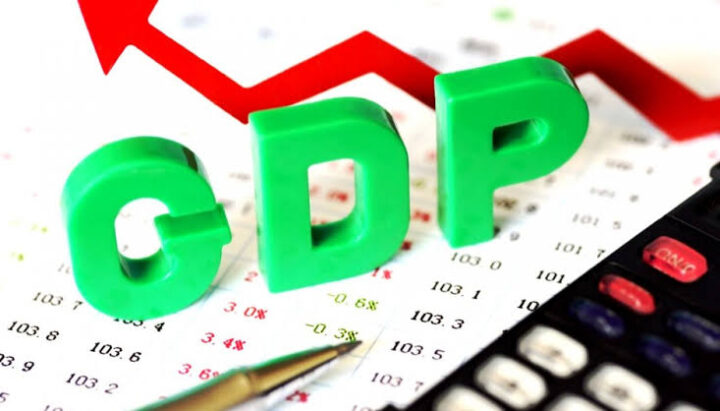Nigeria’s economy recorded a growth rate of 4.23 percent in the second quarter of 2025, according to the National Bureau of Statistics (NBS). The latest data reflect a continuation of the country’s economic rebound, with both oil and non-oil sectors contributing significantly to the expansion. The report has been welcomed by policymakers and private sector players as a sign of resilience in Africa’s largest economy despite global and domestic headwinds.
The NBS report revealed that Nigeria’s Gross Domestic Product (GDP) performance was stronger than the 3.79 percent recorded in the first quarter of the year, marking an upward trajectory driven by improved oil production, stronger performance in services, and steady growth in agriculture. Analysts note that the expansion also demonstrates the impact of ongoing reforms by the federal government, particularly in fiscal discipline, foreign exchange stabilization, and targeted interventions in key sectors.

The oil sector, which has been a drag on growth in recent years due to production shortfalls and oil theft, recorded renewed momentum in Q2 2025. Crude oil production averaged 1.62 million barrels per day during the quarter, up from 1.51 million barrels per day in the previous quarter. This improvement brought Nigeria closer to meeting its OPEC quota and boosted foreign exchange earnings at a time when global oil prices have been relatively stable. Increased investments in security around oil infrastructure and the government’s crackdown on illegal refineries were cited as key drivers of the rebound in production.
On the non-oil front, the services sector once again emerged as the largest contributor to GDP growth. Telecommunications, financial services, trade, and real estate all recorded strong performances. The ICT sector in particular has been expanding rapidly, reflecting the growing adoption of digital technologies and the rise of fintech innovation in Nigeria. With over 150 million internet users, the country continues to be a major hub for digital entrepreneurship in Africa.
Agriculture also maintained positive growth, though at a slower pace due to climate-related challenges and high input costs. Nonetheless, the sector benefited from government programs supporting irrigation, mechanization, and smallholder farmers. Analysts suggest that agriculture remains critical to Nigeria’s food security and employment generation, particularly in rural areas, and must continue to receive attention to address inflationary pressures caused by food shortages.
The industrial sector, including manufacturing, construction, and mining, saw moderate expansion. Manufacturing activity improved, supported by increased local sourcing of raw materials, renewed investor confidence, and relatively stable access to foreign exchange. However, the sector still faces challenges such as high energy costs and infrastructure deficits, which limit its full potential.
The NBS figures also show that Nigeria’s inflation rate, which has been on a downward trend, played a role in boosting consumer confidence and spending during the quarter. Although inflation remains in double digits, recent improvements have been attributed to better agricultural output, easing supply chain pressures, and policy reforms targeting price stability. The Central Bank of Nigeria’s monetary tightening measures, though criticized by some stakeholders, have helped moderate inflationary expectations and stabilize the naira.
Economists argue that the 4.23 percent GDP growth is a sign that Nigeria is moving toward a more sustainable growth path, though risks remain. Insecurity in some agricultural zones, global oil price volatility, and foreign investment inflows continue to pose potential challenges. Furthermore, unemployment and underemployment remain high, raising questions about whether growth is translating into broad-based prosperity.
Reacting to the report, government officials expressed optimism about the outlook for the economy. The Minister of Finance and Coordinating Minister of the Economy, Wale Edun, said the numbers validated the administration’s reform agenda, which focuses on fiscal prudence, revenue mobilization, and private sector-led growth. He noted that continued investment in infrastructure, power, and human capital would further consolidate Nigeria’s economic rebound.
Private sector leaders also highlighted the importance of sustaining the momentum. The Lagos Chamber of Commerce and Industry (LCCI) stressed that while the GDP growth is encouraging, deliberate policies are needed to improve the ease of doing business, reduce multiple taxation, and enhance access to credit for small and medium enterprises (SMEs). These, they argued, are essential to ensure that growth translates into job creation and poverty reduction.
International observers, including the International Monetary Fund (IMF) and World Bank, have noted that Nigeria’s medium-term growth prospects remain positive if reforms are consistently implemented. They particularly emphasized the need for diversification away from oil dependence, improved energy supply, and stronger governance frameworks to attract investment.
Looking ahead, Nigeria’s growth in the coming quarters will depend on the government’s ability to sustain oil production gains, maintain macroeconomic stability, and deepen reforms in agriculture, manufacturing, and services. With population growth outpacing economic growth for much of the past decade, analysts insist that the country must aim for consistent GDP expansion above five percent to significantly reduce poverty and unemployment.
For ordinary Nigerians, the question remains whether the latest figures will translate into improved living conditions. Many households continue to grapple with high costs of living, limited access to affordable healthcare, and weak purchasing power. While the macroeconomic indicators provide a positive outlook, the real test lies in the government’s ability to ensure that the benefits of growth are broadly shared.
In the meantime, the 4.23 percent growth rate in Q2 2025 stands as a significant milestone in Nigeria’s economic journey, signaling resilience in the face of challenges. It underscores the potential of Africa’s largest economy to harness its resources, diversify its base, and chart a sustainable path toward inclusive development.
Support InfoStride News' Credible Journalism: Only credible journalism can guarantee a fair, accountable and transparent society, including democracy and government. It involves a lot of efforts and money. We need your support. Click here to Donate
